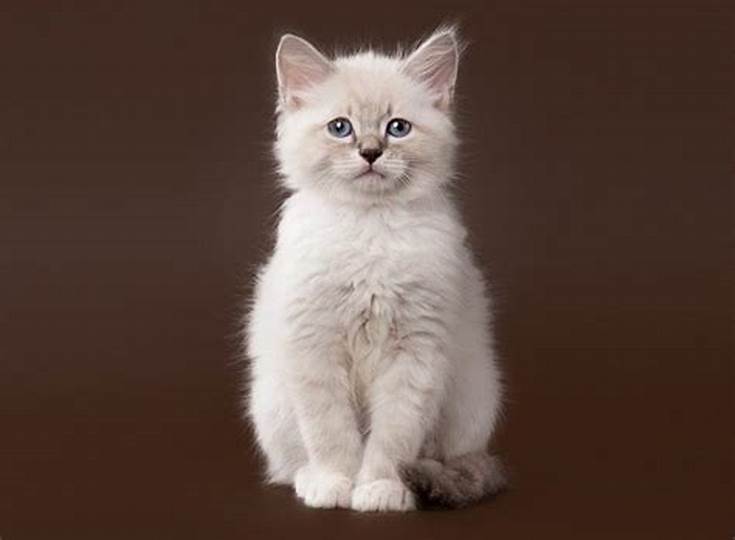
Nevada Cat|Nybyon Cat
In Europe in the 1960s, especially the United Kingdom, Russian Blue has a tendency to return to its original short stature and dark coat features.
Alias Van cat, Turkish Van Cat
English name Turkish Van
Weight 3 -8.5kg
Size Medium cat
Longhair Longhair
Origin Turkey
| Stickness: | Happiness: | ||
| hair loss : | Body Odor: | ||
| Beauty Frequency: | Kids Friendly: | ||
| Be kind to strangers: | Animal Friendly: | ||
| Amount of exercise: | Trainability: | ||
| Saliva Level: | Cold tolerance: | ||
| Heat Resistance: | city Fitness: |
History: In 1955, British lovers were seen playing in the water by Lake Van in Turkey The cats were brought back for breeding, and gradually multiplied and certified by the International Cat Association. The cat is very similar in appearance, intelligent, alert, lively, likes to play, and climbs. It has a sweet and melodious voice and is friendly to people. It is an excellent breed that is very suitable for family breeding.
|
Origin: Originated in Turkey The Van Lake area was mutated from the Turkish Angora and is strictly a strain of the Angora cat. Introduced to the UK in 1955, it was recognized as a separate breed in 1969. |
Character: The difference is that the cat especially likes to play in the water, and even swims in shallow water. Smart, alert, lively, likes to play and climb. It has a sweet and melodious voice and is friendly to people. It is an excellent breed that is very suitable for family breeding. Particularly tenacious, good environmental tolerance, very lively, love to swim. Although once considered aggressive, the breed's behavior has become friendly, especially with other cats, thanks to the efforts of breeders. Independent personality, playful, strong personality, rich feelings, often showing possessiveness to the owner. |
Standard: Head: Medium to large. The length is at least equal to the width. Arc lines. No corners, no straight lines. High cheekbones. The muzzle is plump and round. Slightly terminating in the nose, with a delicate aquiline at the tip. The muzzle and cheeks are clearly demarcated. The chin is slightly rounded. Ears: Large, broad at the base, set high, slightly rounded at the tips. Eyes: Large, chestnut or walnut-shaped, with slightly raised eye tips. The eyelids are accented in pink. Color: blue, amber or different colors. Green is also acceptable, but amber is preferred. Neck: Short and stocky. Body: Long, large, and strong. The rib cage is rounded. The hips are quite broad. The skeleton is large and muscular. Legs and claws: Moderately long. The hind legs are longer than the front legs. The bones are medium in size and well muscled. The claws are rounded. Thick hair between the toes. Tail: Moderately long, thick, covered with densely tomentose hair. At least 5 cm long. Colors are evenly distributed throughout the tail. Coat: Semi-long to long, soft, silky, without woolly undercoat. The collar and trousers are thick in winter. Pure white coat with reddish-brown or cream symmetrical markings. The base of the ear is separated by a white flame pattern. This arrangement of stripes is called the "Lake Van" pattern. The main colors recognized are: red and white, cream and white. Comment: No acceptable colors for hybrids are as follows Creamy yellow (cream-yellow markings contrast with white chalk-like coat. White face markings vertically down the face always Extend the nose and divide the color area on the head in half. The color area on the head is limited to above the eyes and does not extend past the heels of the ears. The ears themselves are white with a tinge of pink inside them. The tail should be pure creamy yellow and possibly Extends slightly upwards to the back.) Reddish-brown cat (The markings are very important, the reddish-brown hair area on the head is limited to above the eyes and does not extend behind the ears. The nose is white with a clear vertical white face The spots divide the reddish-brown area on the head in half, and the tail is also reddish-brown.) Undesirable sexual characteristics: There are more than three spots on the body. There is no flame pattern on the face. The markings are unevenly distributed. Tail coloration starts too early on the back. Characteristics: A very good companion, with a slightly louder voice. Can adapt to apartment living. But a large courtyard with a water environment is better. Growth retardation, taking 3 to 5 years to reach full adulthood. Usually once a week, the number of times needs to be increased moderately in the early summer hair removal season. |